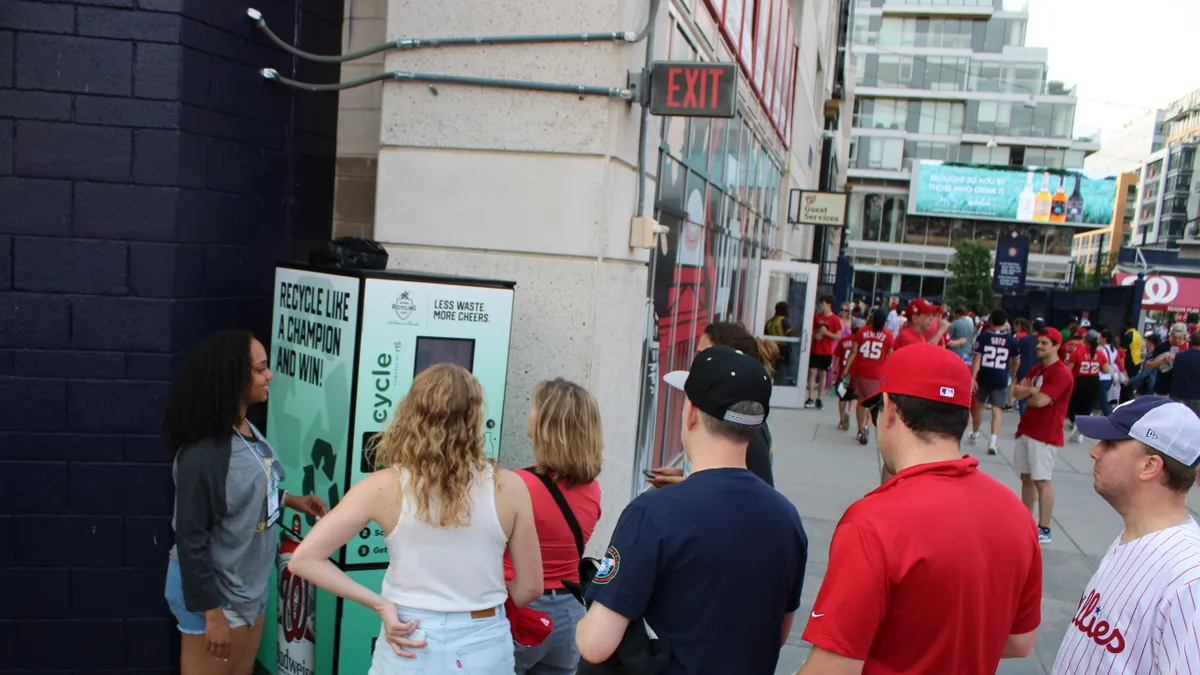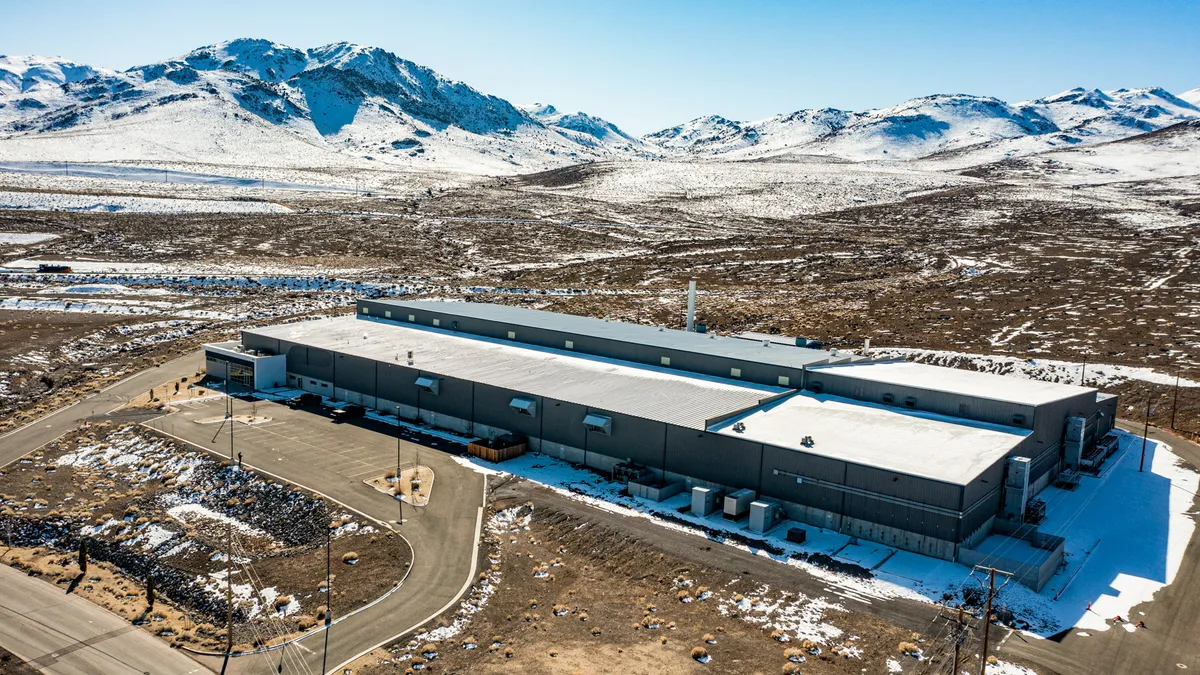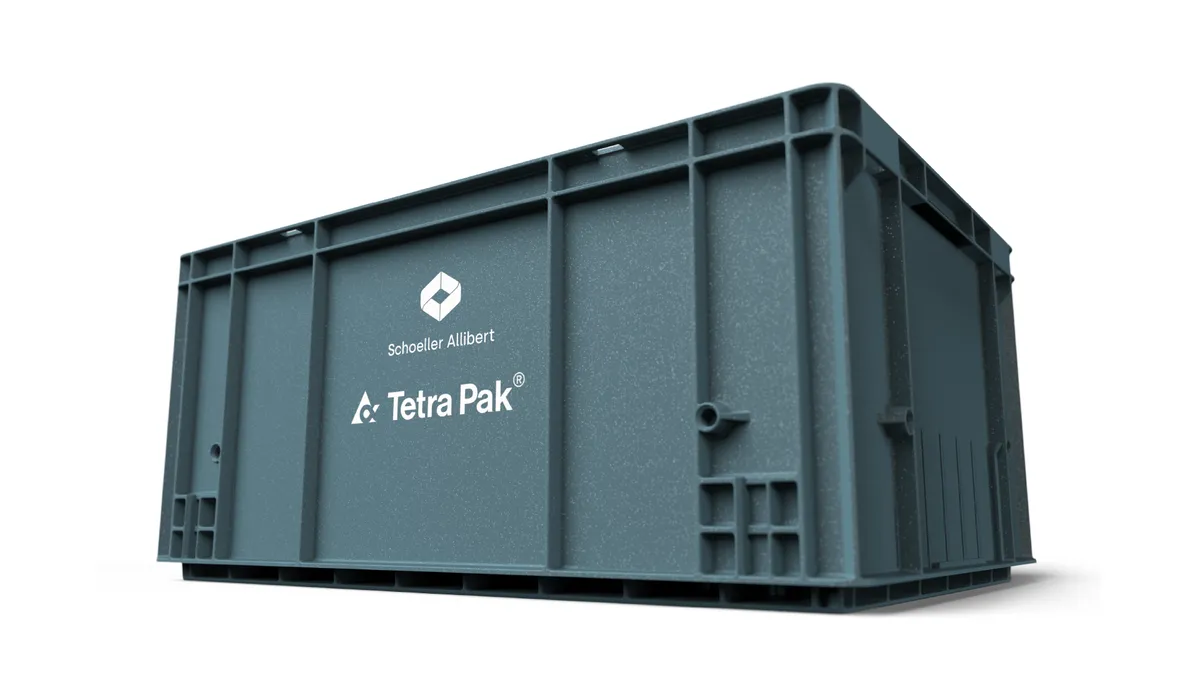More consumers at certain college campuses, stadiums and other venues are getting new opportunities to recycle through investments in reverse vending machines.
While residents of the 10 states with bottle bill laws grew up around the technology, it’s still novel for many consumers across the rest of the country. In recent years, new investments and corporate partnerships have helped bring the machines to new locations. In some cases, mobile and digital rewards or customized incentives have also helped boost participation. And as extended producer responsibility regulations for packaging gain traction the machines could also see new interest.
“The growth of reverse vending machines can play a key role in increasing the convenience and accessibility of material recovery,” said Jennifer Louie, managing director and head of the Closed Loop Infrastructure Group at Closed Loop Partners, via email. In April, CLP announced a catalytic loan to Olyns, a provider of compact and portable RVMs.
The loan will support manufacturing of Olyns’ Cubes: AI-powered machines that can collect and sort food-grade packaging such as plastic, glass and aluminum. The Cubes can be deployed in locations such as major supermarkets, big box stores and pharmacies. They include a large screen to display media, which is part of the company’s business model.
“Olyns runs on a financially self-sustaining business model that uses the revenue from advertisements displayed on the Cube to offset the costs of material collection and sortation,” Louie said. “This enables economically feasible expansion to states that don’t have a deposit return scheme.”
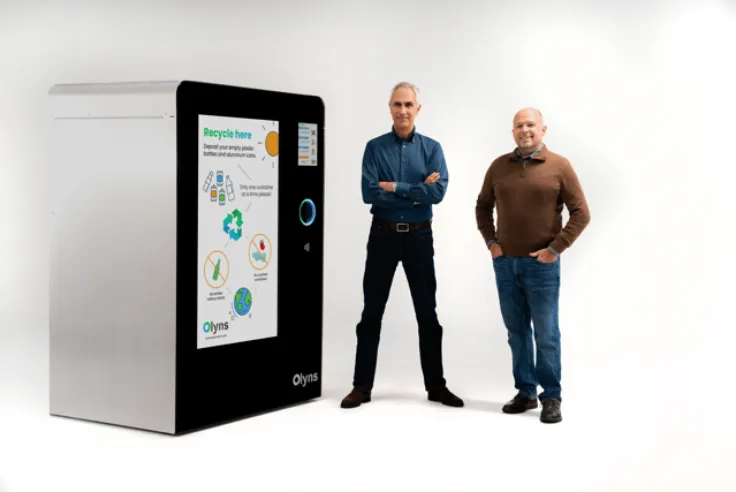
Beyond retail environments, RVMs are also considered to be a good fit for high-traffic areas, such as entertainment venues and sports stadiums. Last year, Recycle Track Systems acquired RVM company Cycle, and that same month the company’s technology was utilized at the Super Bowl.
“A big part of [the] thesis for that deal was expanding that professional sports stadium portfolio, but also trying to diversify the customer base,” said Anwar Khan, product manager at RTS and co-founder of Cycle.
Khan quickly saw the potential for RVMs at stadium spaces, with placements at MLB and NFL events.
At the Super Bowl, fans recycling their beverage containers received instant prizes and a chance to win a pair of tickets to the NFL regular season, as part of the Anheuser-Busch “National Recycling League.” The Washington Nationals were among the inaugural members of the multi-sports league coalition.
“Through inclusion in our scoreboard messaging and signage on the concourse, fans are able to learn about the machines and be rewarded for their sustainable actions with prizes and even drink discounts,” said Lisa Marie Czop, senior vice president of ballpark operations with the Nationals, via email. Czop pointed out that the machines allow the team to highlight sustainability efforts at Nationals Park while inviting guests to take action.
Tapping into sports fans’ recycling interest has also helped RTS create more appealing incentives.
“Folks are given … autographs, jerseys, or signed merchandise from their favorite sports team,” Khan said, pointing out that RVMs create an avenue for consumers to physically interact with and participate in the sustainability initiatives of brands and venues that they patronize. “It’s changing the mentality for consumers.”
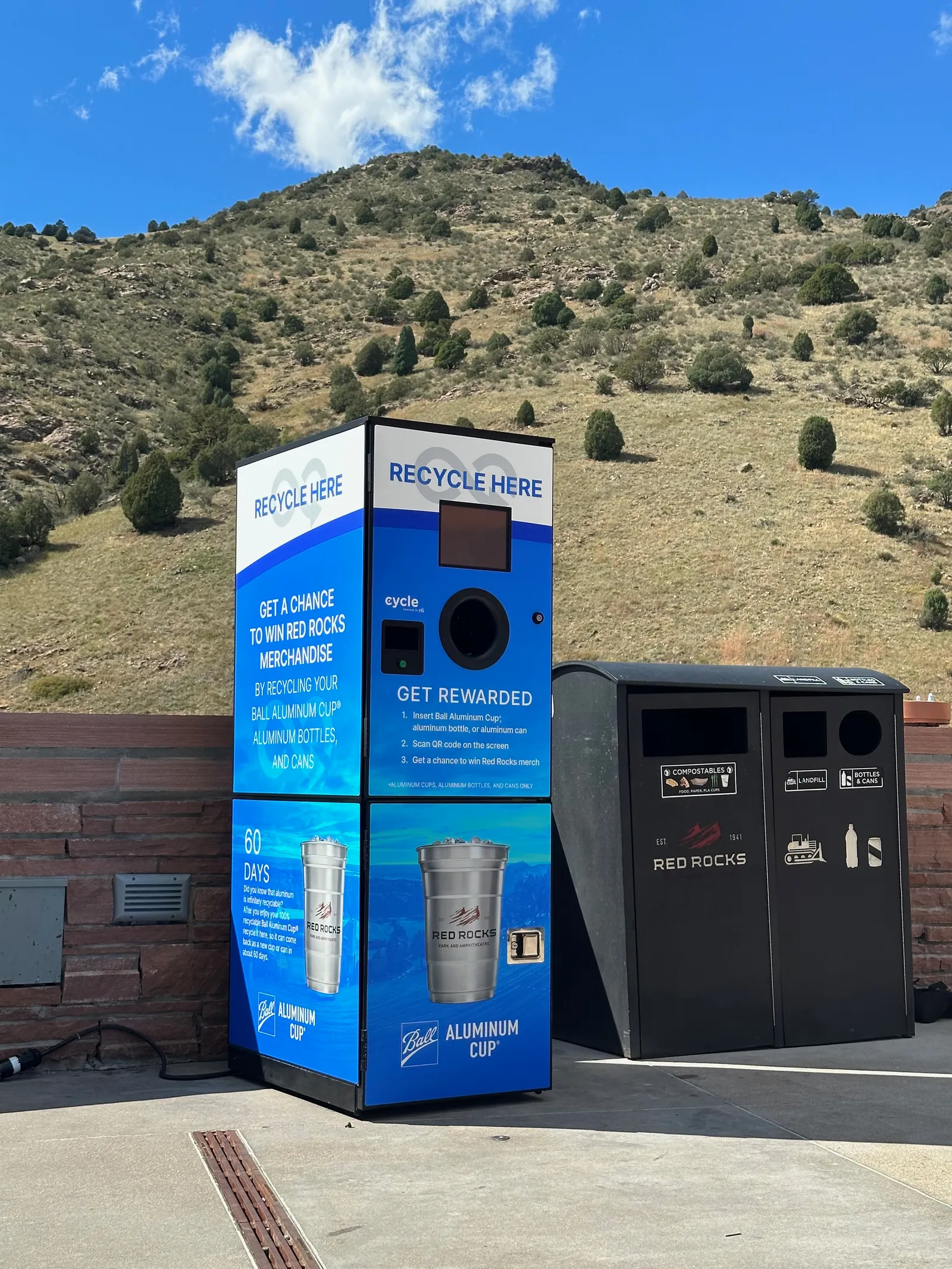
Some packaging companies are also working with RVM providers. This year, Ball partnered with RTS for the installation of an RVM at Copper Mountain Resort in Colorado to collect its aluminum cups. Once cups are inserted into a machine they are scanned, crushed and sorted for recycling.
There could also be applications for collecting reusable packaging. Khan said that various RVM companies are looking at ways to get back specialty cups and containers.
“I definitely see that as a trend, especially in the arena space,” he said.
Khan said municipally supported programs can be especially helpful in states where reverse vending hasn’t been pervasive in the past. He cited an RVM installation in Coral Gables, Florida, in partnership with the Florida Beverage Association. A machine was placed in the lobby of the War Memorial Youth Center, and the top recyclers were awarded benefits that they could use in their local area, such as movie tickets and meal vouchers.
“That program saw a lot of volume, because I think it was something that was so new to the community,” Khan said.
Solanch Lopez, marketing manager for Coral Gables’ Economic Development Department, was extremely happy with the results. “Keeping a circular economy, with the rewards being offered by local businesses, connected the program not only to residents but the businesses community,” she said via email.
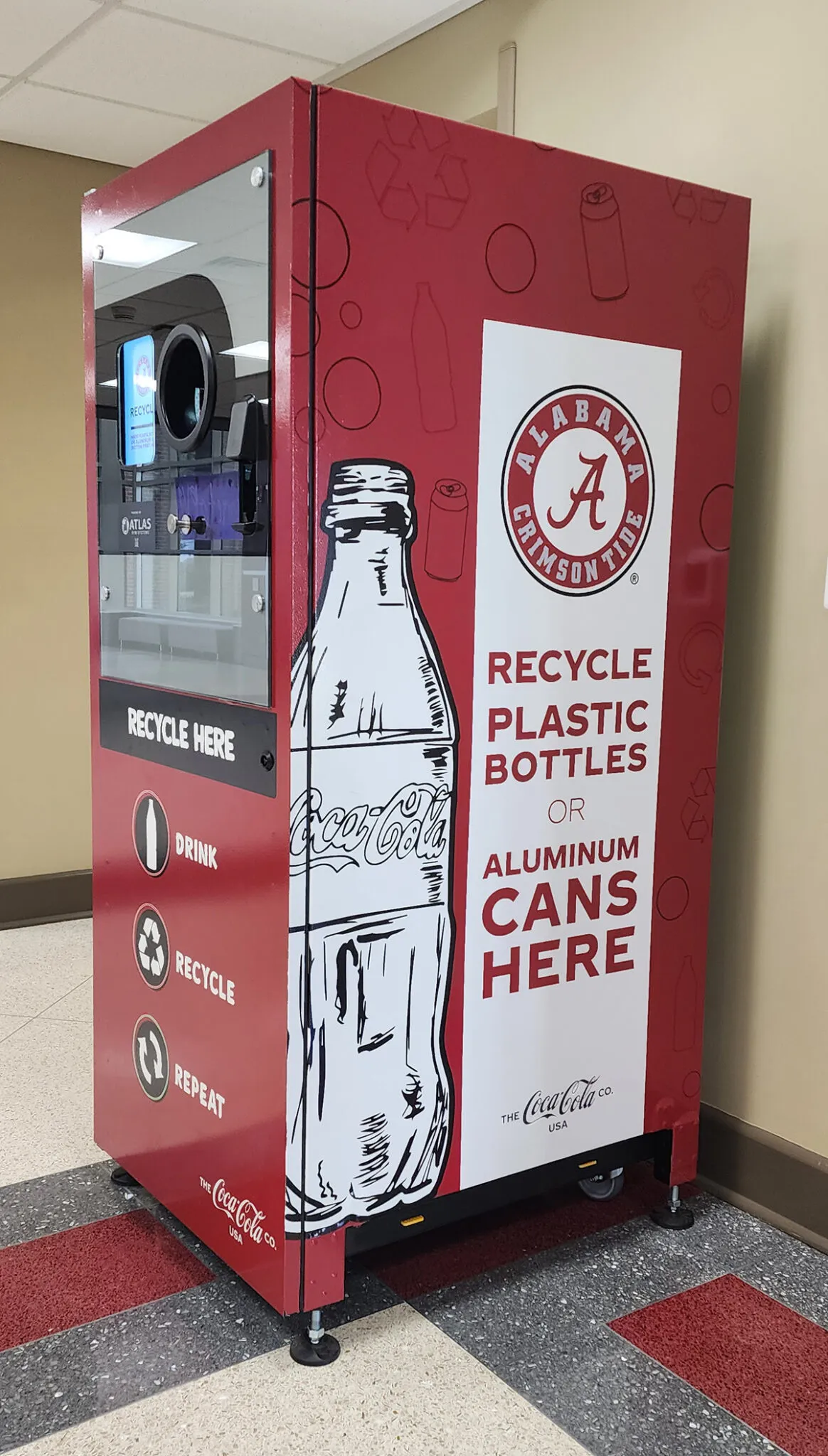
University campuses are considered another ideal environment for RVMs. The University of Alabama, which partners with Coca-Cola as its exclusive beverage provider, installed four machines from Atlas RVM System last fall. The initiative was done in partnership Coca-Cola’s World Without Waste program.
“We were given the opportunity to identify locations that we thought would work for our students to participate in helping to return bottles back [into] the circular economy,” said Carol Agomo, director of administration and contracts for enterprise operations at UA.
Atlas worked with campus personnel to assess the best placement for the machines, based on where students would be most likely to drop bottles and cans. Agomo described university attendees as a “captive audience” for introducing new recycling practices.
“The types of students that we see nowadays are interested in … reducing waste and helping in areas like this,” she said. “Young adults [and] teenagers really have an interest in their actions having long-term impact.”
As more brands and facilities look to increase recycling rates as part of broader EPR initiatives, they will need reliable recycling systems with strong data collection. Proponents say RVMs can help because the machines use sensors to validate deposited materials, and accepted materials are sorted and crushed for efficient storage.
“By using AI to identify and sort containers at the point of deposit into separate bins, Olyns minimizes the commingling and contamination common to traditional recycling,” Louie said. The artificial intelligence can learn to recognize newly deposited products quickly. Plus, the image recognition software helps provide insight on recovery, identifying which types of containers are returned more frequently than others.
The technology employed by RVMs also means a cleaner recycling stream.
“It won’t allow for any contamination,” Khan said.
This story first appeared in the Waste Dive: Recycling newsletter. Sign up for the weekly emails here.


